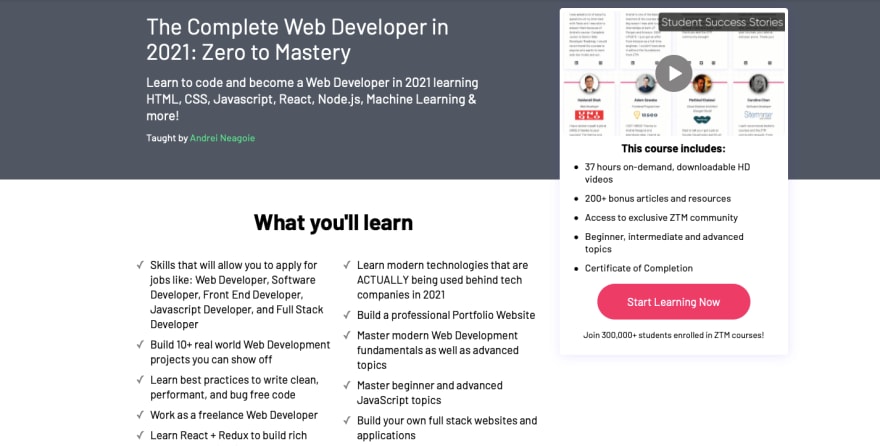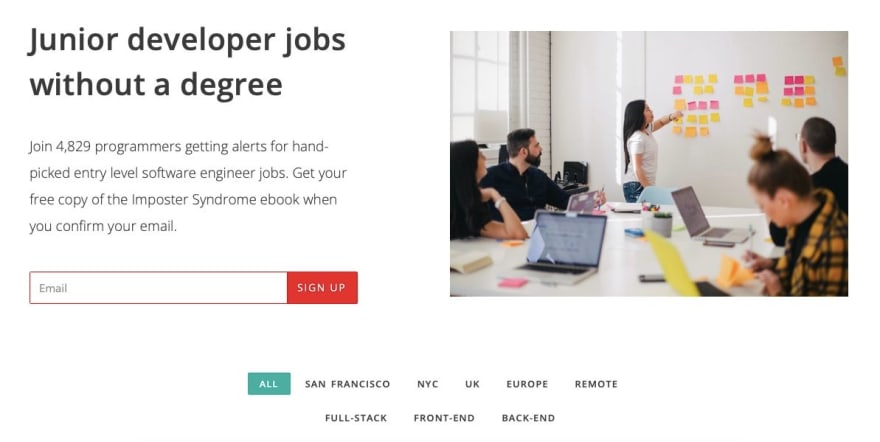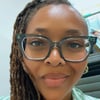Maegan makes a six figure salary as a Software Engineer despite having a degree in Theatre and Dance. They learned to code at a bootcamp and managed to increase their salary from $70,000 to $100,000. Read on for their tips for learning to code and getting hired as self-taught programmer.
Hey, so can you introduce yourself?
I’m Maegan (they/them) and am a Software Engineer at a RealtyTech company in Austin, Texas, USA. I also do some iOS app development on the side. I have a BA in Theatre & Dance from the University of Texas and have lived in the Austin area my whole life. I’ve been officially in a tech job for about 9 months now and before that I was working as a Product Support Specialist at a entertainment systems manufacturer.
Why did you learn to code?
I had been interested in technology since I was little and started learning bits and pieces as I was growing up. I followed along with some tutorials on how to make a C++ temperature converter. In High School, I had a great teacher who taught me and guided me in Java, but then I went to college for theatre and didn’t touch any kind of code for a few years. After graduating, I wanted to start coding again and make an iOS app and that’s when and why I picked it back up.
How did you learn coding?
Aside from the high school class, I am very self-taught and have been figuring it out as I go. I’ll also be the first to say that I’m not done learning. I used a multitude of resources, but it all started with freecodecamp.org I was able to learn HTML, CSS, and some JavaScript. I got stuck with understanding the role of javascript and what all I can do with it, so I signed up for a Thinkful self-paced boot camp where I met with a mentor every week and it helped a lot. Once work picked up, I had to stop but I got what I needed out of the program and felt comfortable enough to continue on my own when I had time.
Once I felt comfortable enough with web development and wanted to start working on iPhone apps, I started learning Swift. I found 100 Days of Swift on Hackingwithswift.com and started that program. It was free and got me building apps which is how I learn. Once feeling dangerous enough to make native apps, I’ve been Google-ing and YouTube-ing my way through learning more of the ins and outs of Swift. Of course, WWDC and official Apple documents are very helpful.
I learn with projects and explanations, so once I feel like I have enough under my belt to build the project I start building. I also didn’t ever finish the 100 Days of Swift or 100 Days of SwiftUI programs.
How has your life changed since learning to code?
My life has changed a bit since learning to code and getting my first software engineering position. My work life balance got better, and my income also increased from $70,000 to $100,000.
The increase in a work life balance and income has really allowed me to start figuring out what I like to do outside of work. Turns out it’s building legos with my wife, building keyboards, which is basically like legos, and making iOS apps on Twitch.
Before learning to code, I was working as a product support engineer that had me traveling 1 to 2 weeks out of every month, giving trainings, and running sales demos on top of doing normal support duties like responding to emails and taking calls. I was also rotating after hours support every other week.
It was a lot of work time compared to family and down time. My current position is way closer to a 9-5 job. Usually the only reasons I’m working outside those hours are because I want to.
What does a typical day as a software developer look like for you?
My day to day usually consists of meetings with a little bit of coding/working in Webflow. The tech stack for the app is React and Python and the marketing sites are using Webflow, so in my “Focus Time” I’m working in either React or Webflow.
My meetings can consist of technical requirement briefs, stand ups, and just other ad-hoc meetings to break down a project further. I definitely did not expect as many meetings as I have though.
What was the interview process like for your first developer job?
The interview process for my first developer job was actually pretty low-key, and I loved it. I posted in a Facebook Group that I wanted a job switch and I have iOS and Web development experience, and the hiring manager commented and said he DMed me the job posting. I read it and said I was interested and sent him my resume. From there I had 4 interviews:
- Screening - This was basically just a call with the hiring manager to make sure I was interested and see if I had any questions
- Technical Interview - This was a lot more basic than what I had experienced. Basically discuss different elements in HTML, CSS, and JavaScript
- Team fit interview - This was a conversation with two people already on the engineering team
- Product manager interview - This was to make sure I can work well with the product manager I’d be working with on a day to day.
That was it! It has been the easiest interview process I’ve also ever been a part of.
Did you ever have imposter syndrome?
I did and I still do. I think I’m the most junior on my team, and it gets in my head. I like to make sure I am doing everything right, and it keeps me from doing my best sometimes.
My best advice I can give for it is push through it and it’ll get better! Make sure your tasks are done and done to the best of your ability. You never know when something you bring up is completely new to your team.
What are your career goals for the future?
Ultimately, I want to transition to a developer relations position for a mobile development tool. Mobile development is such a neat space to be in. A smart phone is such a personal device that is always with you that I only see mobile development getting bigger and bigger.
As for the developer relations aspect, I just really enjoy sharing what I’m learning and how tools can help enable developers to do their best work. I do this already on my Twitch and YouTube channels. I also have a blog where I post about swift, app development tools, and what it’s like being a self taught developer. I enjoy making content that can benefit others and just want to be able to do that everyday.
<!--kg-card-begin: html--><!--kg-card-end: html-->










Oldest comments (0)